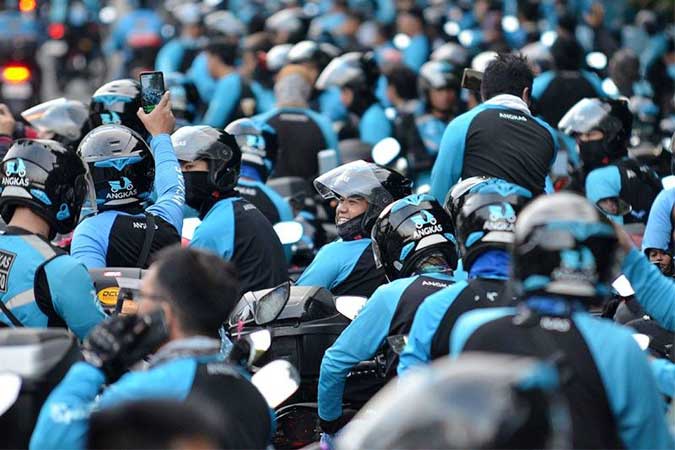
DBDOYC, Inc., the company behind the Angkas motorcycle taxi app, aims to offer its services to more locations nationwide and is currently preparing to operate four-wheel vehicles, its top official said.
“It is really determining the key cities. I think there is an opportunity for us to be able to expand the Angkas system where it is really needed, especially in the provincial cities,” Angkas Chief Executive Officer George I. Royeca said on the sidelines of the BusinessWorld Economic Forum last week.
“We hope we will get their approval soon. If we could expand to as many cities as possible, that would be great,” he added.
The motorcycle taxi provider is also venturing into the four-wheel business after securing approval to commence operations.
“We have gotten our approval already, so it is just a matter of time. We are in preparation right now. Hopefully, over the next few months, we will see Angcars on the road,” he said.
Mr. Royeca said that Angcars will initially launch in Metro Manila, while the fleet size is still being determined.
Angkas expects this new addition to boost the company’s overall operations.
“Well, it is definitely a much bigger base. I think it is going to be a high contributor but our hearts are still focused on developing the informal sector of two-wheels,” Mr. Royeca said.
He also said the government should legitimize motorcycle riders as they are a big contributor to the country’s economy.
“The informal workers, such as boatmen, masseuses, and habal-habal drivers, are already working, but without the help of the government and financial services, and proper access to a lot of these different benefits. What’s missing are policies in our economy that recognize them. Through recognizing the informal sector, we could reinforce their work, significantly boost the economy, and uplift millions of Filipinos almost overnight,” he said during the forum.
“On top of the infrastructure, which we know is being taken care of by the private sector, let’s take a look at the human aspect, the human capital and how do we make them informed and empowered members to strive in this economic ecosystem,” he added.—Ashley Erika O. Jose



